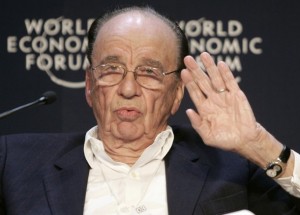When the now-defunct print version of Newsweek ran its asinine “Muslim Rage” cover, I kept thinking it was fine as long as the Mideast version of the cover was entitled “American Rage.” Um, didn’t we only recently kill 45,000 people, minimum, in Iraq for no particular reason? I don’t mean our troops–they were just following orders–I mean our government. But it’s hard to fault a magazine that was obviously on it last legs, wobbling about. From Michael Kinsley’s New York interview with Newsweek and Daily Beast EIC Tina Brown, a passage about the magazine-publishing world’s ridiculously grand days of yore:
“Michael Kinsley:
Newsweek, in its heyday, had correspondents all over the world.
Tina Brown:
Thirty bureaus.
Michael Kinsley:
Thirty bureaus.
Tina Brown:
You know, it was very funny—when I looked at the document of sale, it was like the vestiges of the great galleon it had been. It was like that wreck of theTitanic in the James Cameron film—they’re swimming through the rooms, and you see the chandeliers. Every so often, you would swim around a corner and see a chandelier—things like private dining. You suddenly realize, this was an era when there were things like private dining rooms.
Michael Kinsley:
Yes.
Tina Brown:
When [Washington Post publisher and Newsweek owner] Kay Graham arrived in a foreign city, she was really like the State Department—the Newsweekbureau would be there to greet her. And that Newsweek bureau would immediately get her an interview with, you know, Ferdinand Marcos.
Michael Kinsley:
She had a private chef at Newsweek. And when she wasn’t in town, I remember the editor at the time, Bill Broyles, got to use the chef.
Tina Brown:
I know.
Michael Kinsley:
How much of that is unnecessary?
Tina Brown:
It’s totally unnecessary.
Michael Kinsley:
But it did add to what made up Newsweek.
Tina Brown:
Absolutely. No, it did, listen—it was very grand.
Michael Kinsley:
So what’s going to happen? You’re not going to be able to do that.
Tina Brown:
No, we’re not. But Newsweek still has a great deal of access and power. You go to Brazil, you go to India—we have a hugely global footprint. You can get an interview with anyone overseas on the basis of being part of Newsweek. It still has a great deal of impact.“


